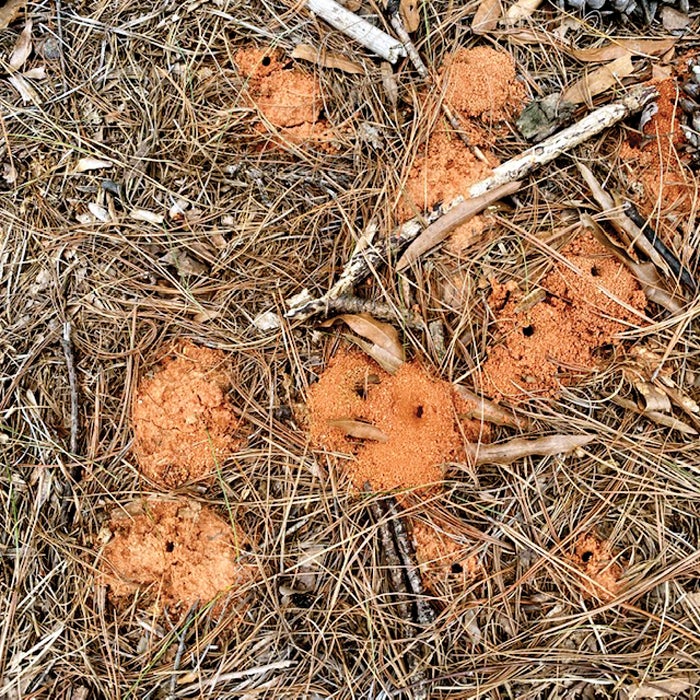Amy-Lynn Albertson: Bees, bees, bees
Published 12:00 am Saturday, March 11, 2023
By Amy-Lynn Albertson
N.C. Cooperative Extension
Bees in the lawn?
Have you noticed bees flying low along your grass and digging little holes?
If so, you might have digger bees.
Many common species of solitary bees nest in individual hollows in the ground. They don’t have queens or build colonies like honeybees and other social insects.
Digger bees range in size from one-half to three-quarters of an inch and may be a variety of colors such as blue, green, copper or metallic reddish-brown. They may belong to any of several groups of bees, such as membrane bees, sweat bees, mason bees and leafcutter bees, and occur throughout the state. In the evening, females dig nesting burrows reaching six or more inches in depth. Small mounds of soil may appear around each nest opening. When there are large populations of bees, there are also many holes, each belonging to an individual female. During the day, the active females collect pollen and nectar to carry back to the nest to form a “ball” anywhere from one-eighth to 14 inches in diameter, which is placed within a “cell” excavated in the side of the burrow. A single egg is laid upon the pollen ball in March, April or early May. After hatching, the larva feeds on pollen and develops within the cell into the next generation, emerging the following year in March or April. Mating then occurs, and bee activity begins to pick up as the nesting cycle resumes. Although adult digger bees feed on nectar, none store honey like honeybees. Solitary, ground-nesting bees play a vital role in ecological systems, especially in the pollination of crops and wild plants. Solitary bees are valuable pollinators and should not be destroyed unless there is some compelling reason.
Ground-nesting bees generally prefer to make their homes in areas with morning sun exposure and well-drained soils containing little organic matter. Burrows are often dug in areas of bare ground or sparse vegetation. These bees usually avoid damp soils. Damage to lawns and turf is usually very minimal. Solitary bees rarely sting, and there is no mass attack as might be found with honeybees or yellow jackets. You can continue mowing and other outdoor activities with little problem. However, with substantial populations, one may prefer to avoid the area for four to six weeks while nesting occurs. Cultural control methods include heavy watering or irrigation with a lawn sprinkler during the nest-building period to discourage nesting. Tilling soil to destroy tunnels may help, but establishing dense turf is probably the best deterrent to further nesting. Applications of heavy organic matter can be included as a soil amendment, if practical when tilling the soil. If the soil or location is not conducive to a healthy lawn, groundcovers or heavy mulches may be an alternative solution.
In celebration of spring and all pollinators, Rowan County Cooperative Extension, Hurley Park and Salisbury Parks and Recreation have partnered to bring author Dr. Danesha Seth Carley, associate professor of horticultural science at North Carolina State University and director of the Southern Integrated Pest Management Center. Dr. Seth Carley is the author of “Pollinator Gardening for the South: Creating Sustainable Habitats.” She will speak about pollinator gardening from 6-7:30 p.m. on Thursday, April 20, at the Salisbury Civic Center. This seminar is a free event, but seating is limited. Please register online at go.ncsu.edu/rowanpollinators. For more information about pollinators, contact the Rowan County Extension Center at 704-216-8970.
Amy-Lynn Albertson is the director of the Rowan County Extension.






